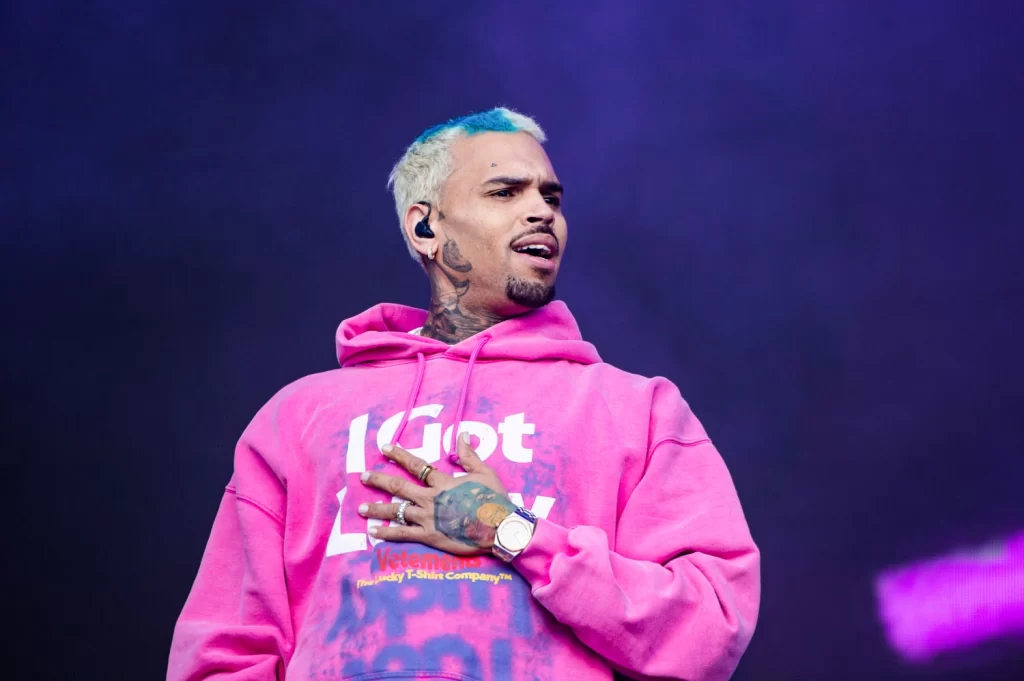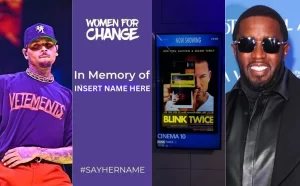Why We Must Reevaluate Our Support for Troubling Figures Like Chris Brown and Diddy
3 min read
As Chris Brown prepares for his arrival in South Africa this December, the nation will be simultaneously engaged in its 16 Days of Activism campaign, aimed at raising awareness against the abuse of women and children. Yet, amidst these efforts, there lies a stark contradiction. Many still seem willing to overlook the dark pasts of artists like Brown and Sean “Diddy” Combs, who recently made headlines for troubling allegations.
A recent cinematic experience reinforced these concerns for me. I attended Zoë Kravitz’s directorial debut, Blink Twice, a psychological thriller that delves into themes of power and predation. The film vividly explores the puppetry of patriarchy, shining a light on the systemic support that enables men who perpetrate violence against women. Just days after watching this unsettling portrayal, Diddy was arrested in the U.S., echoing the very horrors depicted on screen.
The parallels between art and life are unsettlingly vivid. Reports detailing Diddy’s alleged misdeeds—akin to drugging and exploiting women—send shivers down my spine, reminding me of a society that often turns a blind eye to such behaviors. And then came the news of Chris Brown’s upcoming South African tour, a development that left me shaking my head in disbelief. South Africa, a nation grappling with its own crisis of gender-based violence, seems to invite yet another problematic figure into its fold.
The prevailing sentiment around Brown’s concert has been disheartening. Despite the long-standing record of his violent behavior and the ongoing crisis of femicide in the country, many still rally behind him. The usual cycle is apparent: survivors and activists raise alarms, while a significant portion of the public chooses to drown out their voices in favor of a night of entertainment.
What astounds me further is the backlash against those who dare to question the morality of hosting such an artist. Many women among his supporters lash out at organizations like Women For Change for urging introspection. They defend Brown, viewing any criticism as a personal affront rather than a necessary conversation about accountability and justice. It’s a reminder that for many, the discomfort of challenging the status quo is more threatening than the reality of gender violence.
The anger directed at those advocating for a boycott is telling. It exposes a deeply rooted discomfort with confronting the trauma that violence against women represents. Women who carry the scars of past abuse are often dismissed, ridiculed, or even further victimized in discussions about these artists. South Africa’s historical dismissal of women’s experiences continues to manifest in the reactions we see today.

As we prepare for Brown’s concert, it becomes painfully clear that many South Africans prioritize the entertainment of violent men over the safety and dignity of women. This toxic culture extends beyond Brown and Diddy; it permeates all levels of society, affecting local music producers, reality stars, and even community leaders. The normalization of violence against women remains disturbingly prevalent, highlighting a collective unwillingness to confront these issues head-on.
The upcoming concert exemplifies a concerning trend: the overwhelming desire to protect and elevate violent men rather than listen to or support the women impacted by their actions. This is a systemic failure that transcends individual cases, revealing a broader societal complacency in the face of abuse.
As South Africa continues to advocate for change, we must recognize the reality that many men still face minimal consequences for their actions. The invitation to Chris Brown is not just an isolated incident; it reflects a larger narrative where the experiences of women are undervalued. When the national government attempts to persuade us of its commitment to combating gender-based violence, we must remain vigilant and critical.
The conversations surrounding Chris Brown, Diddy, and the themes presented in Blink Twice remind us that every predator is supported by a network of enablers. These figures of power perpetuate a culture where abuse can flourish, and the pain of survivors is often ignored.
As December approaches and the concert draws near, let us not be silent witnesses to this hypocrisy. Instead, we must hold our society accountable and strive for a culture that prioritizes the safety and voices of women. When the noise subsides and the next headline emerges, let’s not feign shock. Let’s work towards a world that truly cares about justice, rather than one that simply entertains the predators among us.





